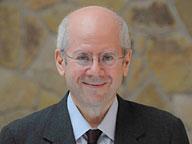Faculty News
—
Professor Nicholas Economides on Microsoft's purchase and writeoff of Nokia's phone business
—

Excerpt from The New York Times -- "Microsoft’s 'grand scheme was to have a single platform that ran on PCs, laptops, tablets and phones, and to be able to sell applications that run Windows,' said Nicholas Economides, an economics professor at the Stern School of Business at New York University who specializes in network economics and electronic commerce. 'That failed.'"
Faculty News
—

Excerpt from The New York Times -- "Microsoft’s 'grand scheme was to have a single platform that ran on PCs, laptops, tablets and phones, and to be able to sell applications that run Windows,' said Nicholas Economides, an economics professor at the Stern School of Business at New York University who specializes in network economics and electronic commerce. 'That failed.'"





















